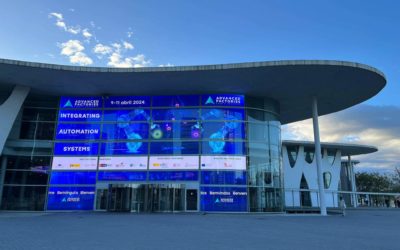Do you know what the keys to Toyota’s success are? Below, we summarize some of the best practices collected by Jeffrey K. Liker in his book The Toyota Way and that help us to understand why this Japanese company is a world reference in the exercise of leadership and the application of the Lean strategy.
The Toyota Way is not simply a story about the success of this automotive giant, but a practical guide for industrial companies that seek operational excellence and want to be more competitive.
In this article, we review some of the lessons learned from Jeffrey K. Liker’s book. Toyota’s principles, rooted in continuous improvement, quality, employee engagement and efficiency, are very useful tools for achieving our long-term business goals.
5 lessons learned from The Toyota Way
1. Continuous improvement drives excellence
The principle of continuous improvement, also known as kaizen, stresses the importance of constantly looking for ways to optimize processes, eliminate waste and improve efficiency.
This approach is not limited to manufacturing processes; it extends to all areas of the company. The improvement mindset fosters innovation and incremental improvement, enabling companies to more easily adapt to changes in a competitive and ever-changing marketplace.
Read this article to learn more about the kaizen methodology.
2. Quality is a commitment, not an option
Toyota has proven that quality is non-negotiable and that companies that set high quality standards also strengthen their market leadership and enhance their reputation among consumers.
At this Japanese company they have always placed quality at the center of everything they do and that is why they have forged a “stop to solve problems” culture. This means dealing with any incident as it occurs, preventing it from becoming a more serious failure that ends up reaching and harming the end customer.
By prioritizing quality at every stage of the production process, zero-defect manufacturing becomes not just a goal, but a commitment.
3. Active employee participation, the real driver of business success
Toyota values and encourages the active participation of its employees in decision-making and process improvement. Put another way: “It is better to develop people from within the organization than to bring them in from outside, as the experience and in-depth knowledge of the work they do is highly valuable within the organization.”
This is a practice that recognizes the value of individual contributions and fosters the emergence of a work environment where innovation and creativity know no bounds.
This lesson applies to all companies, regardless of the sector to which they belong: connecting employees and involving them in the day-to-day running of the company creates a sense of belonging, motivation and commitment that drives the achievement of clear and common goals in the short and long term.
4. Operational efficiency: minimizing waste and maximizing customer value
Optimizing resource management by identifying and reducing the different types of waste or muda is another of Toyota’s maxims.
As we explained in this article, this approach helps to minimize costs and, above all, increases customer value by improving production quality and meeting delivery times, among other benefits.
5. Adaptability and flexibility are critical in a changing environment
Today, the ability of industrial companies to adapt and evolve in line with market changes is essential. And Toyota is the best proof of this.
Companies must learn to be flexible, adjusting strategies and processes to maintain their relevance and competitiveness.
In fact, technology and specifically Industry 4.0 tools such as MES systems can become a great ally for organizations pursuing this goal: they allow us to obtain real-time information and help us to be able to predict trends and react nimbly to new consumer demands.
We hope this brief summary of some of the key ideas of The Toyota Way will help you to improve efficiency in your industrial company.
Contact us to find out how we can accompany you on this path to operational excellence thanks to the implementation of the Mapex MES platform. Remember that it is a solution that will allow you to gain visibility in the factory and will show you those areas where you still have a lot of room for improvement.



